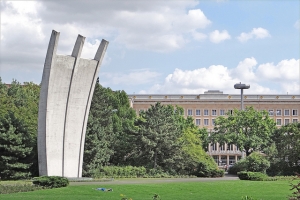Support migrant centric journalism today and donate

Germany's left-leaning government has finally reached a compromise with the conservative opposition and have agreed a legislative bill on immigration reform in the country.
The new immigration law includes measures to attract highly skilled foreigners, calls for better efforts to integrate foreigners in German society, reforms the rules on granting asylum and will make it easier and quicker to expel any foreigners deemed to be a security threat.
The new law will for the first time recognise the need for immigration in Germany in light of the aging population and declining birth rates but that this will be a "controlled" immigration of skilled persons.
The draft bill will have to pass through the federal parliament, the Bundestag, as well as the opposition-controlled federal assembly representing the 16 states, the Bundesrat.
The idea of a controlled immigration scheme was first proposed by Chancellor Schroeder in 2000 and has gone through extensive debate over the past four years, finally gaining the approval of all the parties on Thursday.
An interesting aspect of the bill is the goal of increasing the successful integration of foreigners into German society. The government has agreed to cover most of the costs for language courses to help foreigners become more quickly integrated, which may cost the country between EUR 215 and 235 million.
The courses will be more or less mandatory for new immigrants, with the state permitted to impose sanctions - a 10 percent cutback in unemployment or social welfare support - for those who refuse to attend the language instruction.
More details on the particular immigration schemes that are to be introduced will be released once the bill passes into law later this year.





















